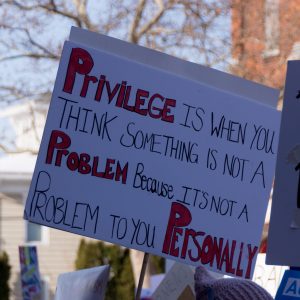 TORONTO — Alon Fisher lost his eye in the Second Lebanon War. But he never lost his faith.
TORONTO — Alon Fisher lost his eye in the Second Lebanon War. But he never lost his faith.
Alon Fisher

 TORONTO — Alon Fisher lost his eye in the Second Lebanon War. But he never lost his faith.
TORONTO — Alon Fisher lost his eye in the Second Lebanon War. But he never lost his faith.
Alon Fisher, who was injured in the Second Lebanon War, speaks to Israel Defence Forces soldiers about his experience, above.
Fisher, then 22, was a commander in the Israel Defence Forces (IDF). On the last day of the war, he was leading several of his soldiers toward a small village in Lebanon when a grenade was thrown at them.
“The grenade exploded five metres from us… I just could do one thing, and it was to yell that we’re hit,” he said in a telephone interview from Israel.
Fisher, who was in front of his soldiers, felt the full force of the explosion. One of the other troops, who wasn’t hit, pulled him to safety.
“He ran at me, he grabbed me in my vest and grabbed me a few metres behind. That was how he saved my life,” Fisher said, adding that a doctor was there to help.
“They saw all my face was bleeding and my legs and arms were bleeding. My left leg got lots of shrapnel and also the right side of my face. One of the shrapnel came into my right eye and took it out of place.”
Shrapnel also got into his brain, Fisher, said.
But the most difficult part of the day was yet to come. Fisher and his troops had to walk 40 minutes through enemy fire to get to a helicopter that would take them to Haifa. Unable to walk, Fisher was carried.
“You need to understand. For me to be a commander – and now you’re lying down and all your soldiers need to carry you… It’s a very big risk my soldiers took to save me.”
When he got to Haifa, Fisher, now 25, spent 11 hours in surgery. Doctors saved his leg, but couldn’t save his eye.
“I have glass in the eye. I can’t see in the right eye. But thank God, after a very long rehabilitation, I can walk,” he said.
To this day, Fisher still has bits of shrapnel in his brain. But he has continued to thank God.
“[God] doesn’t give a person a thing that he can’t deal with,” he said. “Nobody will come to me and… say, ‘You need to sacrifice your son,’ but they will come and say, ‘You need to deal with rehab.’”
And he did. Fisher spent some eight months in rehab, learning to walk again.
“I think that, at the start, it was very difficult… You had questions. Why me? Why should this happen?” he said. “I think it’s made me stronger.”
After he was discharged from the hospital in Haifa, Fisher moved home to Tel Aviv to continue rehab. After his rehab sessions, he started attending classes at Yeshivat Tel Aviv Maale Eliyahu.
“One of my friends was learning at the yeshiva when I was in rehab. He said maybe I can come learn with him at night,” Fisher said.
The former soldier instantly felt at home. “I felt very connected… it was very nice for me,” he said.
Now, Fisher helps out at the yeshiva, whose main goal is to help connect Tel Aviv’s secular Jews to their heritage through outreach programs. The organization runs initiatives including the Reut Center, which offers Jewish identity programs to elementary and high school students, and the Family Center, which offers premarital advice for Jewish couples.
While Fisher can no longer serve in the IDF, he still gives lectures to soldiers through the yeshiva.
“You know that now 40 per cent of the youth in Israel don’t want to go to the army? It’s horrible,” he said, adding that this is because youth are losing their connection to their country. “Because why should they [serve in the IDF]? Why should I now take three years of my life and give them away?”
For Fisher, the answer to this problem is simple.
“If you know the meaning of the army, the connection to Israel… will be strong. They’ll say OK, it’s a very big price, but it’s a price I need to pay.”
Fisher continues to tell his story in hopes that he’ll inspire others to understand that connection.
When thinking back to that day in Lebanon, one thing is clear. “If I had a chance to do it again, I would,” he said.
During the week of Feb. 3, he will be visiting Toronto with members of his yeshiva to speak to youth about the importance of maintaining a Jewish identity.






